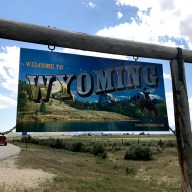A wave of new partnerships between online lenders and nonprofits that offer microloans means more small-business owners can get fast, convenient and sometimes less expensive small-business loans. With the move, nonprofit lenders are gaining access to the financial technology —or fintech —that online lenders, including OnDeck and Lending Club, have pioneered. For online lenders, the partnerships showcase goodwill and provide access to borrowers who, with time and improved credit, may become their own customers. In some cases, the nonprofit and online lender partners work together to provide a wider range of financing products, which the customer accesses simultaneously. Nonprofit lenders — often community development financial institutions, or CDFIs— serve borrowers for-profit lenders don’t: startup businesses and “underbanked” business owners in underserved communities with little to no credit. Many CDFIs offer business counseling and report to business credit bureaus, which helps borrowers’ credit scores as long as they’re paying on time. With improved credit, borrowers could be eligible for small-business loans from online lenders when they need a second or third loan to grow. Online lenders regularly turn down “entire segments of people whom Opportunity Fund would be happy to lend to,” says Caitlin McShane, marketing and communications director at Opportunity Fund, a California CDFI that recently partnered with Lending Club. Starting in January 2016, borrowers whowould normally get a “no” from Lending Club because of bad credit may be able to get a “yes” through Opportunity Fund, McShane says. Lending Club’s technology will seamlessly redirect those borrowers to Opportunity Fund, which will underwrite and service the loans. On the flip side, if a borrower is overqualified for a loan from Opportunity Fund, but still can’t qualify for a bank loan, Opportunity Fund could refer that person to Lending Club, although that isn’t officially part of the partnership, McShane notes. OnDeck, another online lender, is partnered with the Association for Enterprise Opportunity, a micro-business advocate and creator of Tilt Forward, an online platform connecting borrowers with small-business loans from nonprofit lenders. Marrying fintech with lower-cost capital
The details of the specific partnerships vary, but they all combine what makes online lenders successful — intuitive, sophisticated technology — with what nonprofit lenders bring to the table: lower-cost capital and relationship-driven support. Although nonprofit lenders offer lower rates and more in-person assistance than do for-profit online lenders, they’ve traditionally been bogged down by paperwork. Online lenders have made small-business-loan underwriting extremely efficient by using algorithms to pull borrowers’ data, but they’re known to charge high interest rates, with annual percentage rates ranging from 7% to 113%. “If you can bring those two components together — the technology, with lower-cost capital and trusted guidance — you can do more to see how underserved small businesses can get access to capital,” says Connie Evans, president and chief executive officer of the Association for Enterprise Opportunity. Here’s what you need to know about the partnerships twomajor online small-business lenders have forged with nonprofit lenders.
Lending Club and Opportunity Fund
Opportunity Fund focuses on underserved California business owners. It offers small-business loans from $2,600 to $100,000 with one- to five-year terms and APRs ranging from 10.6% to 23%, depending on the term. Through the partnership, California borrowers with bad credit who apply for a Lending Club loan and don’t qualify will be seamlessly directed to Opportunity Fund, which will underwrite and service the loan. Lending Club has gained positive PR from the arrangement:Former President Bill Clinton announced the partnership at aClinton Global Initiative America meeting in Denver. OnDeck and the Association for Enterprise Opportunity
The Association for Enterprise Opportunity’s Tilt Forward initiative uses OnDeck’s technology to help participating CDFIs underwrite borrowers more efficiently. Four CDFIs currently use the Tilt platform: Georgia-based Access to Capital for Entrepreneurs, New Jersey-based The Intersect Fund, Missouri-based Justine Petersen and New York-based Business Center for New Americans. When small-business owners apply for a loan with these nonprofits, they’ll have the same fast and convenient experience that OnDeck offers, but they’ll be matched with a lower-cost loan. Interest rates for the participating CDFIs range from 16.5% to 22%, with a 2% origination fee, according to Evans. The bottom line
As the online lending industry becomes more mainstream, small-business owners have more ways to get loans online. For-profit online lenders including OnDeck and Lending Club are teaming up with nonprofit lenders to offer small-business loans to a wider range of borrowers. Find and compare small-business loans
NerdWallet has come up with a list of the best small-business loans to meet your needs and goals. We gauged lender trustworthiness, market scope and user experience, among other factors, and arranged the lenders by categories that include your revenue and how long you’ve been in business. To get more information about funding options and compare them for your small business, visit NerdWallet’s small-business loans page. For free, personalized answers to questions about financing your business, visit the Small Business section of NerdWallet’s Ask an Advisor page. Teddy Nykiel is a staff writer at NerdWallet, a personal finance website. Email: teddy@nerdwallet.com. Twitter: @teddynykiel Updated Nov. 16, 2016.
Image via iStock.
The article Nonprofit, Online Lenders Team Up to Offer More Small-Business Loans originally appeared on NerdWallet.
















